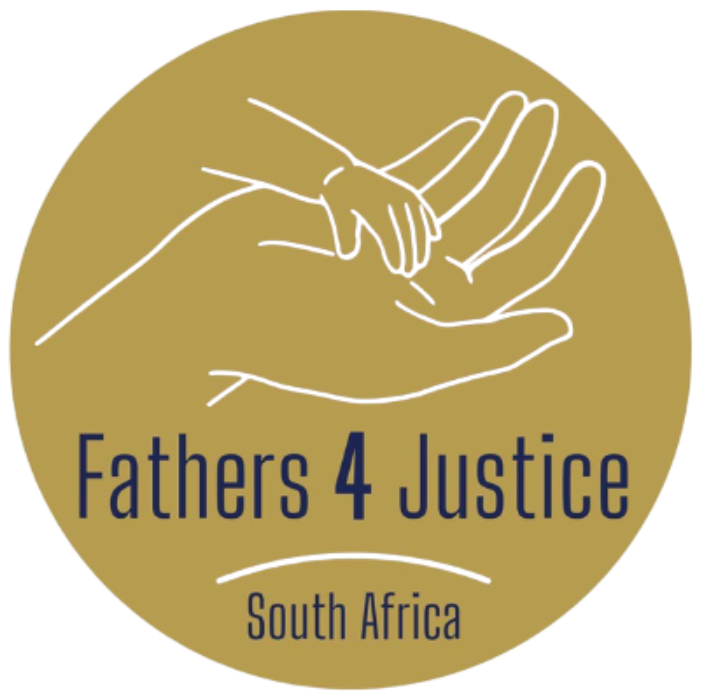In the modern landscape of family dynamics, the role of fathers has become increasingly recognized for its vital importance. The contributions of fathers to their children’s lives go beyond traditional financial support, extending into emotional, social, and psychological realms. Fathers 4 Justice South Africa (F4J SA), under the leadership of Gary da Silva, continues to advocate for the critical role fathers play in their children’s lives and the benefits this brings to children.
Fathers bring a unique set of contributions to the table that significantly benefit the development and well-being of their children. One of the primary roles of fathers is to provide economic support, which directly impacts the quality of life for children. Studies have shown that children who receive consistent financial support from their fathers tend to have better access to resources such as education, healthcare, and extracurricular activities. This support helps to create a stable and nurturing environment, allowing children to thrive.
Beyond financial support, fathers also contribute to their children’s emotional and social development. The presence of an involved father has been linked to higher levels of self-esteem and better social skills in children. Fathers often engage in play and activities that encourage risk-taking, problem-solving, and independence, which are crucial for the development of these skills. Additionally, the emotional bond formed between fathers and children fosters a sense of security and belonging, which is essential for healthy psychological development.
In A Comprehensive Study By Marilyn Jo Bruin: Contributions from Noncustodial Fathers and Reported Change after Divorce in the Quality of Life of Mothers and Children, the following was noted
1. Study Objective: The research aimed to uncover the diverse ways noncustodial fathers contribute to their children’s lives, emphasizing their importance in child development.
2. Context: With more children residing with custodial mothers, the focus on noncustodial fathers’ roles has intensified, highlighting the need to recognize their contributions.
3. Economic Support: A key finding was the direct financial assistance noncustodial fathers provide, including regular child support payments, which are essential for the children’s well-being.
4. In-Kind Contributions: Beyond monetary aid, noncustodial fathers offer in-kind support such as gifts, clothing, and school supplies, showing their commitment to their children’s needs.
5. Emotional Support: The study explored the emotional and psychological backing noncustodial fathers provide, emphasizing its positive impact on children’s mental health.
6. Frequency of Contact: Analysis revealed the importance of frequent and quality contact between noncustodial fathers and their children in fostering strong relationships.
7. Barriers to Support: The research identified significant barriers, including legal, economic, and personal obstacles, that hinder noncustodial fathers from contributing effectively.
8. Impact of Visitation Rights: Visitation arrangements were found to significantly influence the level of support, with better arrangements leading to more substantial contributions.
9. Geographic Variation: Geographic differences in contributions were noted, indicating that location plays a role in how noncustodial fathers support their children.
10. Income Levels: The economic status of noncustodial fathers was found to directly affect their ability to provide support, with higher incomes correlating with greater contributions.
11. Policy Implications: The study suggests that policy changes could enhance the contributions of noncustodial fathers, benefiting children’s overall well-being.
12. Parental Relationships: The relationship between custodial and noncustodial parents was shown to impact the level and type of support provided, with cooperative relationships yielding better outcomes.
13. Child Outcomes: Contributions from noncustodial fathers positively influenced children’s educational and social development, underlining their importance.
14. Socioeconomic Factors: Examines how various socioeconomic factors influence the level and type of contributions from noncustodial fathers.
You can read the full research article by Marilyn Jo Bruin here
F4J SA emphasizes the importance of shared parenting responsibilities. Research indicates that children with active involvement from both parents perform better academically, exhibit fewer behavioral problems, and have better mental health outcomes. Shared parenting also models a balanced approach to relationships and responsibilities, teaching children about equality and cooperation.
Moreover, fathers play a crucial role in modeling positive behavior and providing discipline. The presence of a father figure can help establish boundaries and provide guidance, which is essential for children’s moral and ethical development. Fathers often encourage resilience and perseverance, preparing children to face challenges and setbacks with confidence.
In advocating for equal parenting responsibilities, F4J SA highlights the need for legislative changes that ensure both parents share the responsibilities of childcare and maintenance. F4J SA has been instrumental in pushing for policies that promote mandatory mediation and arbitration in childcare plans, emphasizing that both parents must equally contribute to their children’s upbringing regardless of marital status, religion, culture, or tradition.
In conclusion, the contributions of fathers are multifaceted and indispensable for the well-being and development of children. Fathers provide not only financial stability but also emotional support, social development, and moral guidance. Organizations like Fathers 4 Justice South Africa, continue to champion the essential role of fathers, advocating for policies that promote equal parenting and the best interests of children.
For Mediation and Litigation Strategy Advice or more information, You can contact Fathers 4 Justice South Africa:
Twitter: @fathers4J_SA
WhatsApp: 066 331 8972
Email: info@f4j.co.za
Website: Fathers 4 Justice South Africa
LinkedIn: Fathers 4 Justice South Africa
Facebook: Fathers 4 Justice South Africa
#fathersforjustice # fathersforjusticesouthafrica #Curatorpersonae #Curatorbonis #curatoradlitem #Visitation #Fathersrights #Fathersresponsibilities #divorce #Guardianship #Contact #Care #Custody #Childcustody #Custodyofthechild #childmaintenance #guardianadlitem #curatoradlitem #Voiceofthechild #divorcemediationsouthafrica #fathersrights #fathersrightsinsouthafrica #howdivorceaffectschildren #howtogetaletterofguardianship #guardianship #divorcemediation #divorcemediationnearme #Maintenance #Maintenanceissues #Maintenanceproblems #familylaw #familycourtsouthafrica #fathersforjustice #fathers4justice #familylawsouthafrica #parentsrights #unmarriedfathersrightsinsouthafrica #visitationrightsforfathersinsouthafrica #whendoesafatherloseparentalrightssouthafrica #legalguardianshipdocument #familylawyersnearme #custodyofchildtofather #unmarriedfathersrights #parentingplan #parentingplanexample #parentingplanssouthafrica #Parentalalienation #Parentalalienationsyndrome #PAS #DSM5
